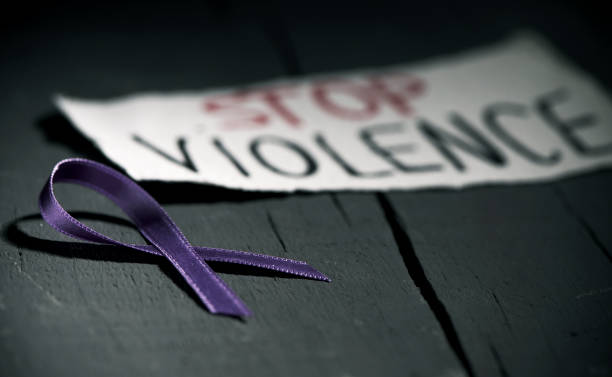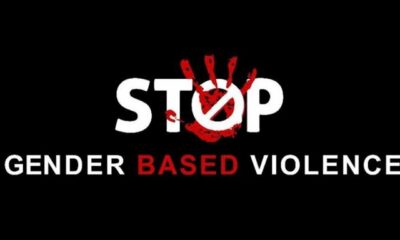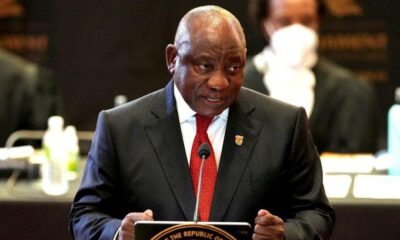News
“How Do We Even Tackle GBV?” Experts Reveal Why South Africa’s Fight Keeps Failing And What Can Actually Work

“Where Do We Even Start?” South Africans Ask as Experts Reveal Why GBV Still Feels Impossible to Fix
South Africans don’t need another stat to understand the scale of gender-based violence. We live inside the crisis. We see the headlines. We watch the hashtags trend, #GBV, #AmINext, #SayHerName, every few months when another woman’s story cracks through the noise.
And yet, for all the awareness campaigns, marches, and legislation, the country keeps asking the same exhausted question:
How do we actually fix this?
A range of experts and one survivor, say the answer requires more honesty than comfort, more systemic work than slogans, and more courage than quick fixes.
Legislation Alone Isn’t Saving Women
Private investigator Brad Nathanson has spent years working on gender-based violence cases. And he’s blunt about what he’s seen since the Gender-Based Violence Act was introduced.
According to him, the law has not magically shifted the behaviour of abusive men. If anything, the number of cases being reported has risensomething he believes is likely because more women feel confident enough to come forward, not because violence itself is decreasing.
But Nathanson points to an uncomfortable trend emerging on the margins:
some women, he says, are using the Act to lay charges he considers “frivolous”, allegations that still result in men being arrested and held for days or weeks because the law requires complaints to be taken seriously.
From his perspective, the system is being stretched on both ends:
women are still unsafe, men without evidence against them sometimes sit in prison cells, and the law feels like a double-edged sword rather than a shield.
South Africans online often echo this tension. Scroll through community pages or TikTok commentary and you’ll see the same mix of anger, fear, and frustration from both survivors and those who say they’ve been falsely accused.
The public doesn’t deny the GBV crisis, but many feel the justice system is too overwhelmed to distinguish between real danger and manipulated loopholes.
“If We Don’t Fix Society, We Can’t Fix GBV”, The Psychology Behind the Crisis
Clinical psychologist Dr Jonathan Redelinghuys situates the problem much deeper than police stations and courtrooms. To him, lawmakers are treating symptoms while the cause keeps spreading.
He says real GBV prevention must start with stripping away the social conditions that fuel violence in the first place:
-
Poverty that traps women with their abusers
-
High rates of substance abuse
-
Harmful cultural attitudes toward women and marginalised groups
-
Silence around mental health and trauma
Redelinghuys argues for early-stage interventions that build empathy and allyship, especially toward groups often targeted for violence, women, LGBTQI communities, sex workers, and people living in vulnerable circumstances.
And when violence does happen, he stresses the need for a “zero-tolerance” system backed by real support structures: safe shelters, legal assistance, and reporting pathways that don’t retraumatise survivors.
To many South Africans, his comments feel painfully familiar. We’ve seen campaign after campaign launch with big promises and thin budgets. What we haven’t seen is a coordinated plan that addresses the roots of the probleminequality, toxic masculinity, and generational trauma.
“I Left With Nothing” A Survivor’s Fight Back to Life
Spiritual therapist and survivor Annemarie Viviers cuts straight to the heart of the matter: behind every police case number is an entire life ruined piece by piece.
She lived through seven years of abuse before finally escaping.
“I left with nothing,” she says. “No money. No food. An empty bank account. An empty everything.”
For many South African women, that sentence is not dramaticit’s reality. Viviers says countless victims stay because they simply have nowhere to go, no support network, and no financial safety net.
She believes three things need urgent attention:
-
More public recognition of how severe South Africa’s GBV crisis truly is
-
More education, because abuse is still dismissed or disbelieved
-
More support groups and community shelters, so women have real options when leaving becomes a matter of survival
Viviers rebuilt her life from scratch, emotionally, financially, spiritually. But she knows many women never make it out.
Her final wish is raw and revealing:
“I know it’s a dream, but I’d love to see perpetrators punished publicly.”
In a country where justice often feels invisible, her yearning for public accountability is not unusual. South Africans have long expressed frustration that GBV cases collapse, drag on, or end with slap-on-the-wrist sentences.
Why South Africans Feel Stuck And Why Experts Say Change Is Still Possible
If you put all these insights together, a grim but clearer picture emerges.
-
The law isn’t enough.
-
The justice system is overwhelmed.
-
Many survivors have no escape route.
-
Society keeps producing violent men faster than the system can rehabilitate them.
But experts insist the crisis isn’t hopeless.
Communities that openly challenge misogyny, raise boys differently, support victims early, and demand accountability, both legally and socially, can break the cycle.
South Africa has mobilised around big national moments, HIV/AIDS treatment, road safety campaigns, even sport. Many believe GBV requires the same level of political will, social courage and resource investment.
Until then, the question remains:
If not now, when?
{Source: The Citizen}
Follow Joburg ETC on Facebook, Twitter , TikTok and Instagram
For more News in Johannesburg, visit joburgetc.com



























